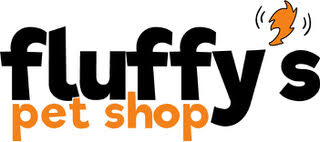Can Dogs Eat Cheese?
Are you a cheese aficionado wondering if your furry friend can join in on your cheesy delights? The good news is, yes, some cheeses can be a safe and tasty treat for your dog (like our healthy Cheezy Chews) Before you share your charcuterie favorites, let's explore which cheeses are safe, the nutritional benefits, serving suggestions, and which ones are better left off your pup's plate.
🧀Safe Cheeses for Dogs
When it comes to occasionally treating your dog to cheese, opt for these. The cheeses on this list are a good source of calcium & protein.
- Cheddar: source of potassium & zinc in addition to calcium & protein
- Cottage Cheese: lower in fat, salt, and lactose than other cheeses
- Swiss Cheese: lower in fat, sat, and lactose than other cheeses
- Mozzarella: lower in fat, salt, and lactose content than other cheese varieties
- Parmesan: safe to eat because of its very low lactose content; however, give in moderation due to the sodium content.
- Goat Cheese: Goat milk's smaller fat globules and unique protein structure make is easier to digest than cow’s milk, reducing the risk of digestive issues. Goat’s milk is also a good source of probiotics which can help balance the gut microbiome aid in digestion.
🧀Nutritional Benefits of Cheese for Dogs
Cheese can offer some nutritional perks for your canine companion:
- Protein Boost: A good source of protein, aiding in muscle growth and repair.
- Calcium Content: Supports strong bones and teeth.
- Vitamins and Minerals: Provides vitamins like B12 and minerals like calcium and phosphorus, promoting overall health.
- Dental Health: Recent studies suggest that the calcium in cheese may help re-mineralize teeth and reduce plaque by neutralizing the acid caused by bacteria.
🧀Serving Suggestions
-
Cheezy Chews: Our specially formulated Cheezy Chews are great way to introduce cheese into your dog’s diet and are mixed with other nutrient-rich ingredients like coconut oil, rolled oats & honey. Click to read more about our gourmet ingredients.
-
Moderation is Key: Cheese should be a small part of your dog's diet due to its inherent fat and salt content.
-
Watch for Lactose Intolerance: Some dogs may be lactose intolerant, causing digestive upset. Start with small amounts to test tolerance.
-
Avoid Additives: Stay away from flavored or seasoned cheeses that may contain ingredients harmful to dogs, such as onions or garlic.
🧀Cheeses to Avoid for Dogs
Not all cheeses are safe for your furry friend. Steer clear of:
- Blue Cheese: Contains Roquefortine C, potentially harmful to dogs.
- Brie: High in fat and may upset a dog's stomach.
- Cheeses with Additives: Any cheese containing ingredients toxic to dogs like garlic, onions, or certain herbs.
- Feta Cheese: High in sodium and not recommended for dogs.

In conclusion, sharing a small piece of cheese with your dog can be a delightful treat, but always prioritize their health and well-being. Stick to dog-safe options, like Cheezy Chews in moderation and keep an eye out for any adverse reactions. When in doubt, consult your veterinarian before introducing new foods into your dog's diet.


